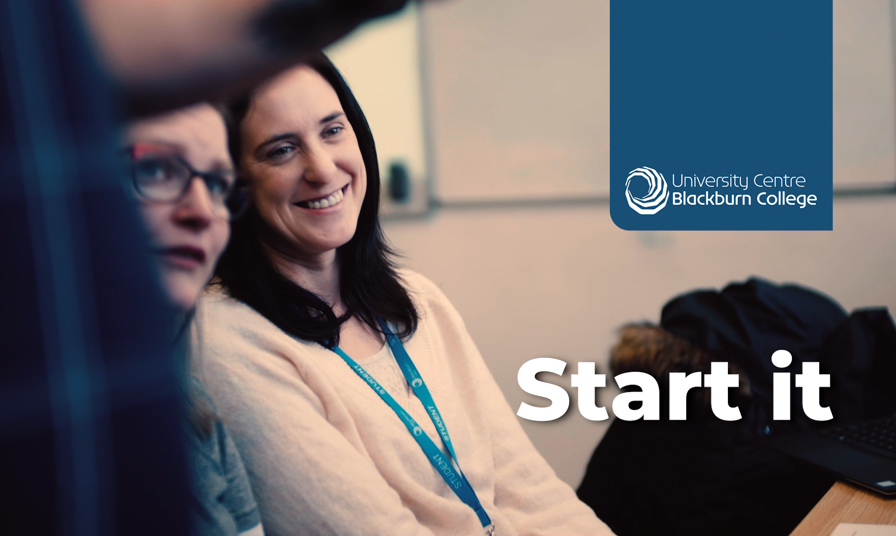Entry Requirements
Minimum 80 UCAS Tariff points plus Grade 6/B GCSE Maths and Grade 4/C GCSE English. Students without formal qualifications but experience will be considered.
Study Mode
Full time
Duration
Full time:
3 years
Timetable
Check with tutor
Key Features & Benefits
- Study at our World Class Campus
- Learn from tutors who have a wealth of industry knowledge and experience
- Benefit from long standing partnerships with a variety of businesses and organisations
- Rated "Good" by Ofsted in all areas - as of January 2022
Do you see yourself collaborating with analysts, data architects, and data engineers to improve businesses' data solutions through the transformation of information patterns? What you're looking for is right here in this course.
-
Overview
In this course you will acquire the skills necessary to organise, analyse, and present information with the aid of AI and related technologies such as algorithms. The course includes practical elements where you will utilise a wide range of resources within the Computing laboratories with the opportunity of putting the theory you will learn into practice and further developing the required skills that will make you a well rounded employable graduate. Practical activities may include developing software solutions, resolving hardware related limitations and issues, creating small, medium and enterprise level networks using enterprise level infrastructure and creating database solutions on enterprise label Relational Database Management Systems (RDBMS).
-
Entry Requirements
Minimum 80 UCAS Tariff points. In addition, for this programme, students will be required to have a GCSE at grade 6 (formerly grade B) in Mathematics and grade 4 (formerly grade C) in English. If English is not your first language you will need to demonstrate the ability to study in English. For non-native speakers of English, you must demonstrate proficiency of English equivalent to B2 of the Common European Framework, specifically IELTS 6.0 (or equivalent) with no more than 2 sub scores below IELTS 5.5 (or equivalent).
Applicants who do not meet the standard entry criteria but have relevant work/life experience will be considered on an individual basis and will be invited to interview. The interview will consider prior formal qualifications, and evidence of experience gained through employment or other verifiable sources. Students will be admitted when the interviewers are confident that the student has demonstrated sufficient prior knowledge, skill, aptitude and interest to be equally able to succeed as a candidate offering the standard entry criteria.
Where applicants do not have the requisite GCSE 6 (formerly B) in mathematics or, a short bridging maths course will be offered and upon successful completion (passing of a summative test) candidates will be accepted to the course.
Care Leavers or Young Carers
We want students from all backgrounds to have the opportunity to go to University. If you have spent three months or more in local authority care OR are a young carer, you will be eligible for a contextual offer. This is a grade reduction of 1-A Level grade below our standard entry requirements. For example, a standard offer of CCC, would become CCD. MMM at Level 3 Extended Diploma would become MMP. To apply we advise that you tick the box on your UCAS application which identifies you have spent time in care and to help identify you as eligible for our contextual offer.
-
What will I study?
Level 4:
- Introductory Programming Concepts
- Software Design and Development
- Network Systems
- Computer Systems Architectures
- Introductory Mathematics for Data Science
- Principles of Data Science
Level 5:
- Database Design and Development
- Applied Machine Learning
- Object Orientated Programming
- Information Management and Data Analytics
- Project Management
- Research Project
Level 6:
- Ethical and Legal Issues
- Artificial Intelligence
- High Performance Computing
- Strategic Analytics
- Major Project Implementation
- Major Project Report
-
How will I be assessed?
Throughout the course a full range of assessment techniques will be used. You could be assessed by examinations, including open-book examinations, practical assessments, assignments, briefs, essays, presentations (including group presentations), reports and portfolio building.
Each module is formally assessed through, for example, open book examinations, group projects, essays, reports, practical implementations, assignments or briefs, presentations, group presentations, portfolio building, self-assessments. This formal assessment will count towards your module mark and feedback is usually given within 3 weeks following the submission of your formal submission of work.
Additionally, some lecturers will provide informal feedback, for example, following an examination they may choose to work through the exam paper in a tutorial. It should be noted that feedback is part of the ongoing learning cycle which is not limited to written feedback. Other forms of feedback include one-to-one meetings with a personal tutor, dissertation and project supervision meetings, a lecturer responding to learner questions or responses during topic or situation discussions.
Feedback is intended to help you learn and you are encouraged to discuss it with your module tutor.
-
Teaching & Learning
Learning and teaching will be delivered through a range of established methodologies including:
- Lectures
- Seminars
- Workshops
- Audio Visual materials
- Research
- Archive and Library searches
- Distance and e-learning (via VLE)
- Field Visits
- Attendance at conferences
- Presentations at conferences
- Research visits
-
Work Placements
Work placements are subject to availability. You are also responsible for any costs in travelling to and from your work placements, for any accommodation costs and in some instances the cost of acquiring a satisfactory Disclosure and Barring Service (DBS) report.

95.8%
Highest in the area for students feeling supported by teaching staff in their learning.















